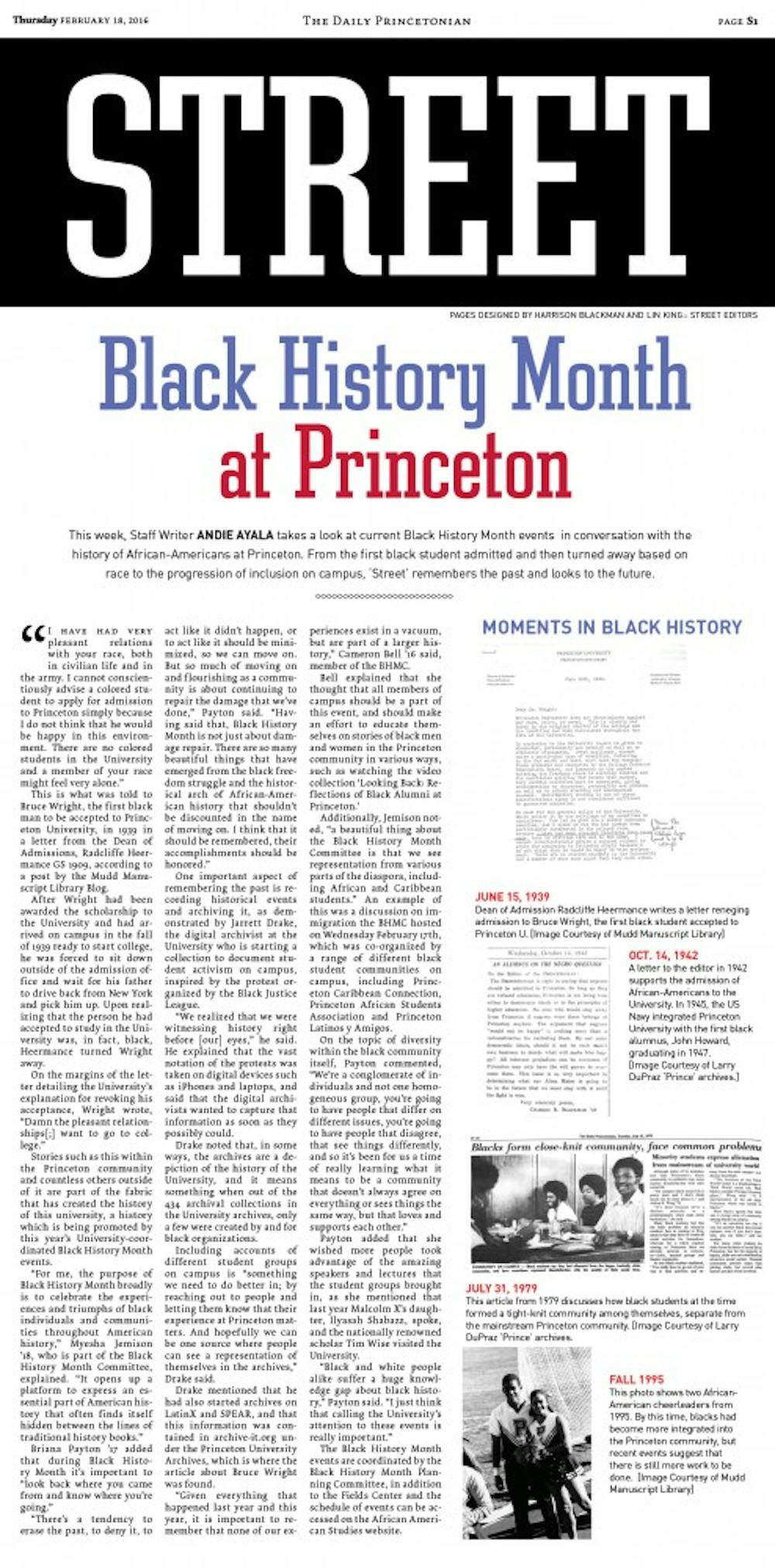“I have had very pleasant relations with your race, both in civilian life and in the army. I cannot conscientiously advise a colored student to apply for admission to Princeton simply because I do not think that he would be happy in this environment. There are no colored students in the University and a member of your race might feel very alone.”
This is what was told to Bruce Wright, the first black man to be accepted to Princeton University, in 1939 in a letter from the Dean of Admissions, Radcliffe Heermance GS 1909, according to a post by the Mudd Manuscript Library Blog.
After Wright had been awarded the scholarship to the University and had arrived on campus in the fall of 1939 ready to start college, he was forced to sit down outside of the admission office and wait for his father to drive back from New York and pick him up. Upon realizing that the person he had accepted to study in the University was, in fact, black, Heermance turned Wright away.
On the margins of the letter detailing the University’s explanation for revoking his acceptance, Wright wrote, “Damn the pleasant relationships[;] want to go to college.”
Stories such as this within the Princeton community and countless others outside of it are part of the fabric that has created the history of this university, a history which is being promoted by this year's University-coordinatedBlack History Month events.

“For me, the purpose of Black History Month broadly is to celebrate the experiences and triumphs of black individuals and communities throughout American history,"Myesha Jemison ’18, who is part of the Black History Month Committee, explained. "It opens up a platform to express an essential part of American history that often finds itself hidden between the lines of traditional history books.”
Briana Payton ’17 added that during Black History Month it's important to “look back where you came from and know where you’re going.”
“There’s a tendency to erase the past, to deny it, to act like it didn’t happen, or to act like it should be minimized, so we can move on. But so much of moving on and flourishing as a community is about continuing to repair the damage that we’ve done,” Payton said.“Having said that, Black History Month is not just about damage repair. There are so many beautiful things that have emerged from the black freedom struggle and the historical arch of African-American history that shouldn’t be discounted in the name of moving on. I think that it should be remembered, their accomplishments should be honored.”
One important aspect of remembering the past is recording historical events and archiving it, as demonstrated by Jarrett Drake, the digital archivist at the University who is starting a collection to document student activism on campus, inspired by the protest organized by the Black Justice League.

“We realized that we were witnessing history right before [our] eyes,” he said. He explained that the vast notation of the protests was taken on digital devices such as iPhones and laptops, and said that the digital archivists wanted to capture that information as soon as they possibly could.
Drake noted that, in some ways, the archives are a depiction of the history of the University, and it means something when out of the 434 archival collections in the University archives, only a few were created by and for black organizations.
Including accounts of different student groups on campus is “something we need to do better in; by reaching out to people and letting them know that their experience at Princeton matters. And hopefully we can be one source where people can see a representation of themselves in the archives,” Drake said.
Drake mentioned that he had also started archives on LatinX and SPEAR, and that this information was contained in archive-it.org under the Princeton University Archives, which is where the article about Bruce Wright was found.
“Given everything that happened last year and this year, it is important to remember that none of our experiences exist in a vacuum, but are part of a larger history,” Cameron Bell ’16 said, member of the BHMC.
Bell explained that she thought that all members of campus should be a part of this event, and should make an effort to educate themselves on stories of black men and women in the Princeton community in various ways, such as watching the video collection ‘Looking Back: Reflections of Black Alumni at Princeton.’
Additionally, Jemison noted, “a beautiful thing about the Black History Month Committee is that we see representation from various parts of the diaspora, including African and Caribbean students.” An example of this was a discussion on immigration the BHMC hosted on Wednesday February 17th, which was co-organized by a range of different black student communities on campus, including Princeton Caribbean Connection, Princeton African Students Association and Princeton Latinos y Amigos.
On the topic of diversity within the black community itself, Payton commented, “We’re a conglomerate of individuals and not one homogeneousgroup, you’re going to have people that differ on different issues, you’re going to have people that disagree, that see things differently, and so it’s been for us a time of really learning what it means to be a community that doesn’t always agree on everything or sees things the same way, but that loves and supports each other.”
Payton added that she wished more people took advantage of the amazing speakers and lectures that the student groups brought in, as she mentioned that last year Malcolm X’s daughter, Ilyasah Shabazz, spoke,and the nationally renowned scholar Tim Wise visited the University.
“Black and white people alike suffer a huge knowledge gap about black history,” Payton said. “I just think that calling the University’s attention to these events is really important.”
The Black History Month events are coordinated by the Black History Month Planning Committee, in addition to the Fields Center and the schedule of events can be accessed on the African American Studies website.








